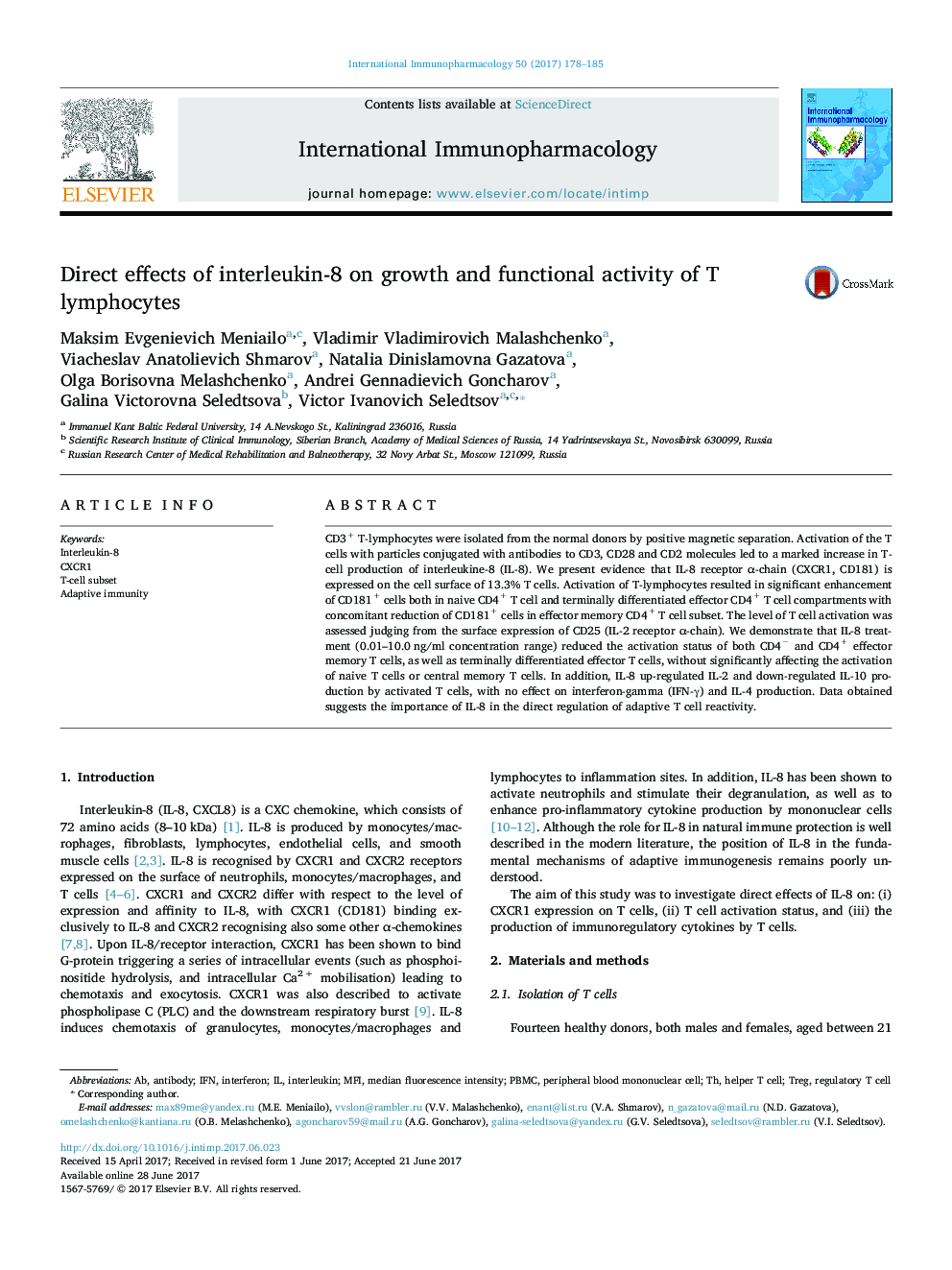| Article ID | Journal | Published Year | Pages | File Type |
|---|---|---|---|---|
| 5555306 | International Immunopharmacology | 2017 | 8 Pages |
â¢Activation of T-lymphocytes leads to an increase in T-cell production of IL-8.â¢IL-8 is able to modulate IL-8 receptor expression on activated T cells.â¢IL-8 is capable of affecting directly TCR-mediated activation of both CD4+ and СD4â T subsets.â¢IL-8 is a modulator of cytokine production by activated T cells.
CD3+ T-lymphocytes were isolated from the normal donors by positive magnetic separation. Activation of the T cells with particles conjugated with antibodies to CD3, СD28 and СD2 molecules led to a marked increase in T-cell production of interleukine-8 (IL-8). We present evidence that IL-8 receptor α-chain (CXCR1, CD181) is expressed on the cell surface of 13.3% T cells. Activation of T-lymphocytes resulted in significant enhancement of CD181+ cells both in naive CD4+ T cell and terminally differentiated effector CD4+ T cell compartments with concomitant reduction of CD181+ cells in effector memory CD4+ T cell subset. The level of T cell activation was assessed judging from the surface expression of CD25 (IL-2 receptor α-chain). We demonstrate that IL-8 treatment (0.01-10.0 ng/ml concentration range) reduced the activation status of both CD4â and CD4+ effector memory T cells, as well as terminally differentiated effector T cells, without significantly affecting the activation of naive T cells or central memory T cells. In addition, IL-8 up-regulated IL-2 and down-regulated IL-10 production by activated T cells, with no effect on interferon-gamma (IFN-γ) and IL-4 production. Data obtained suggests the importance of IL-8 in the direct regulation of adaptive T cell reactivity.
